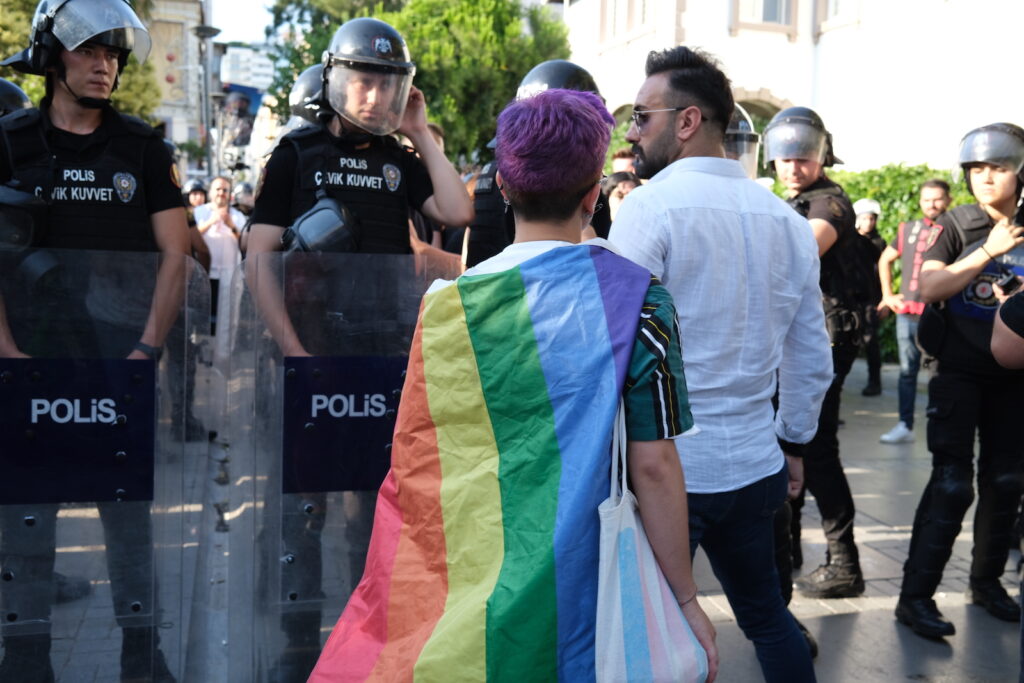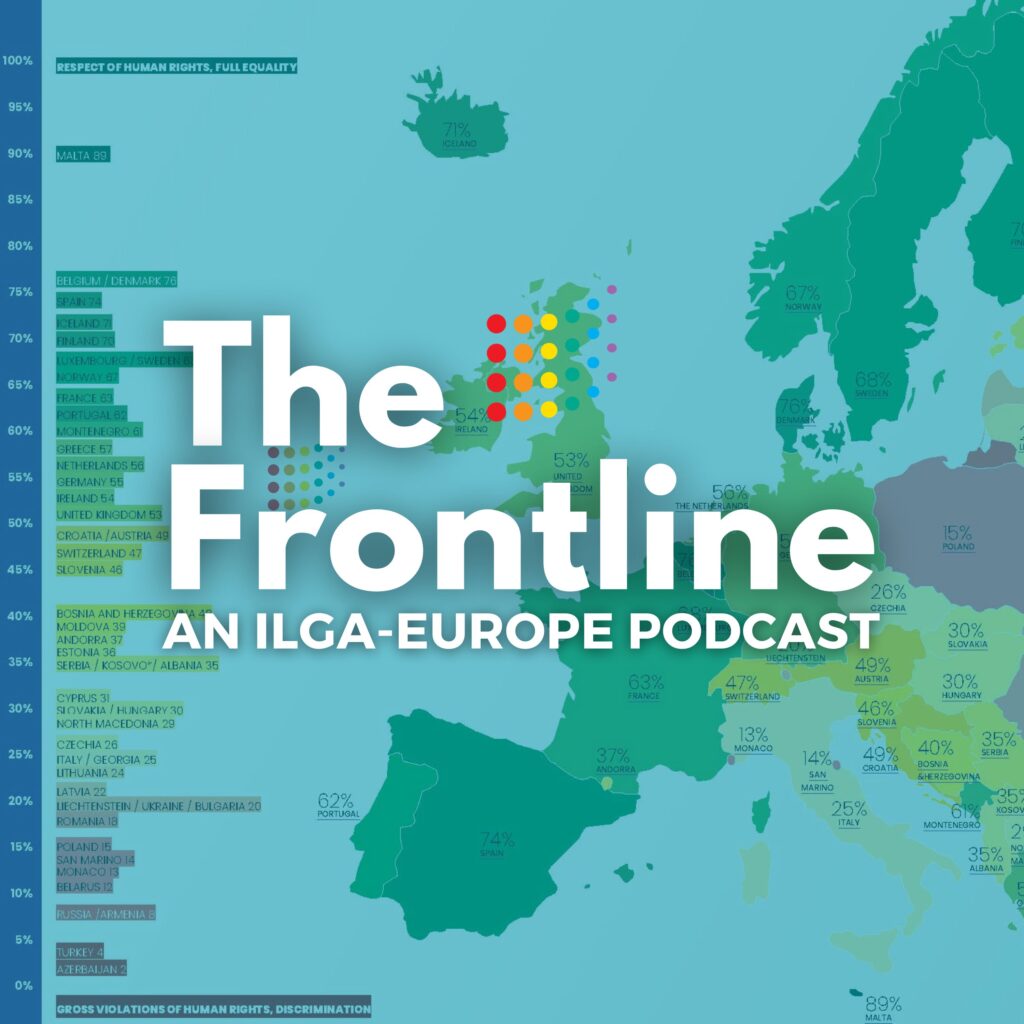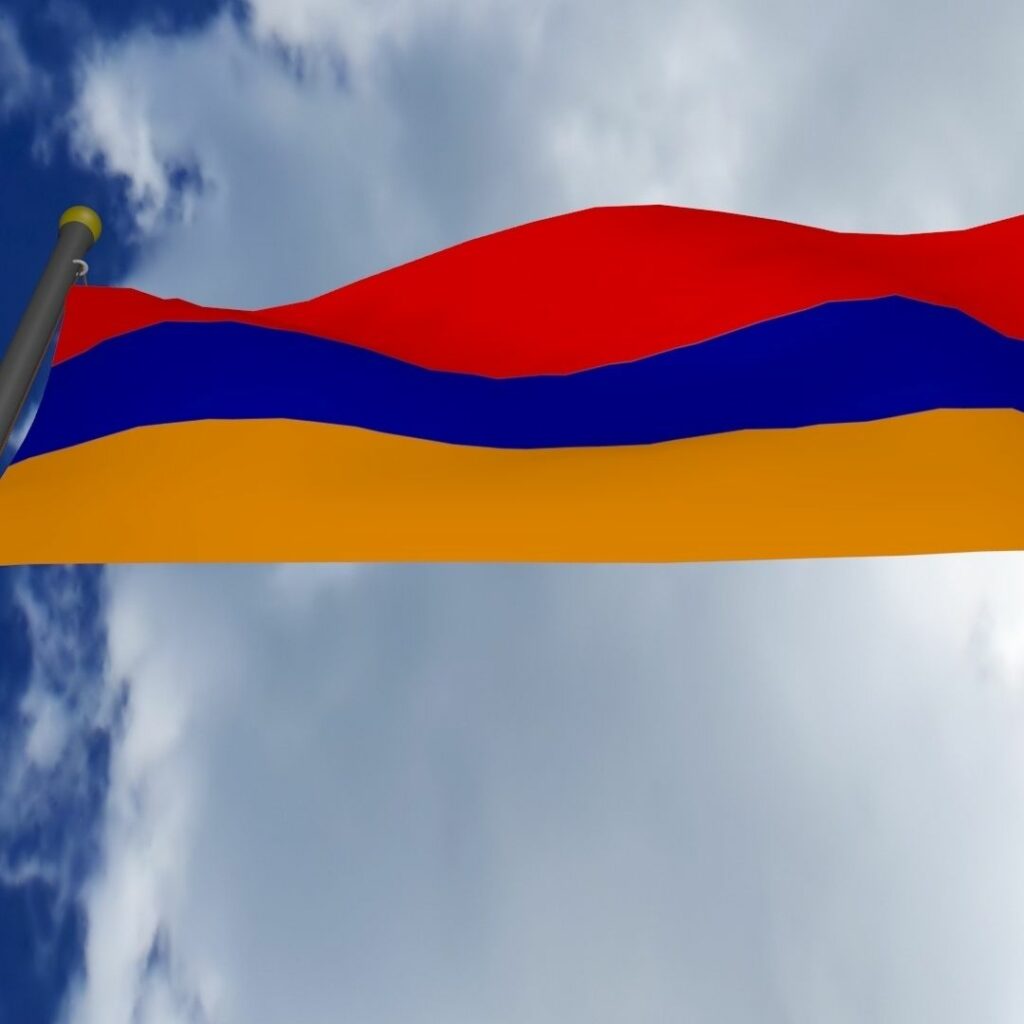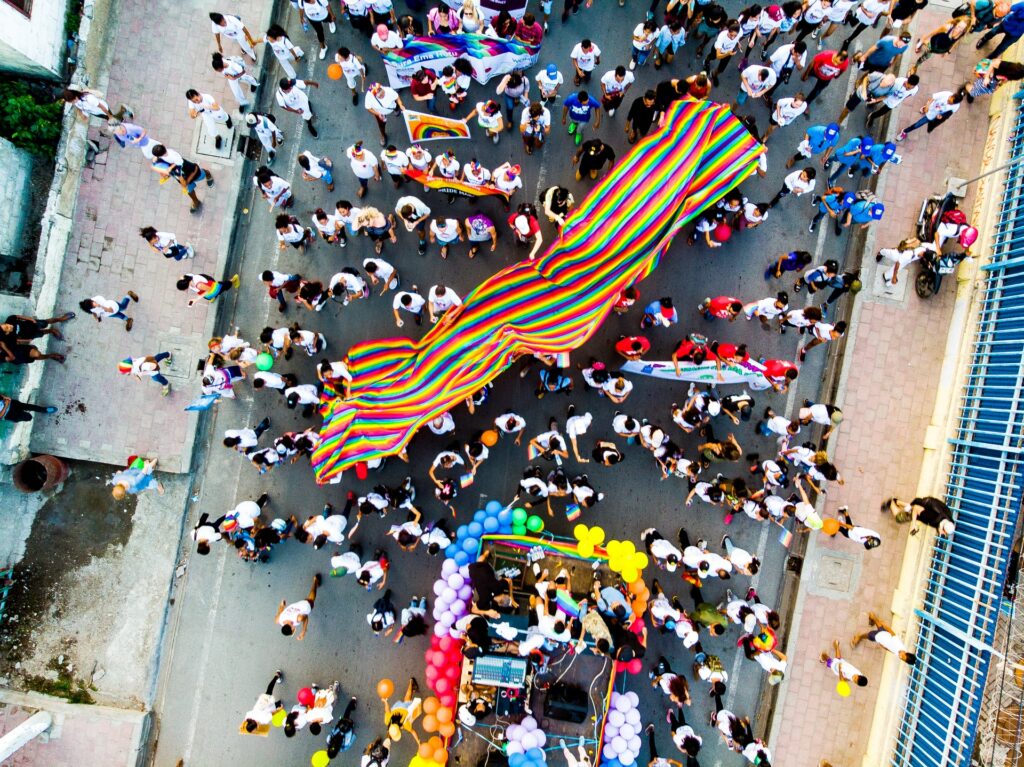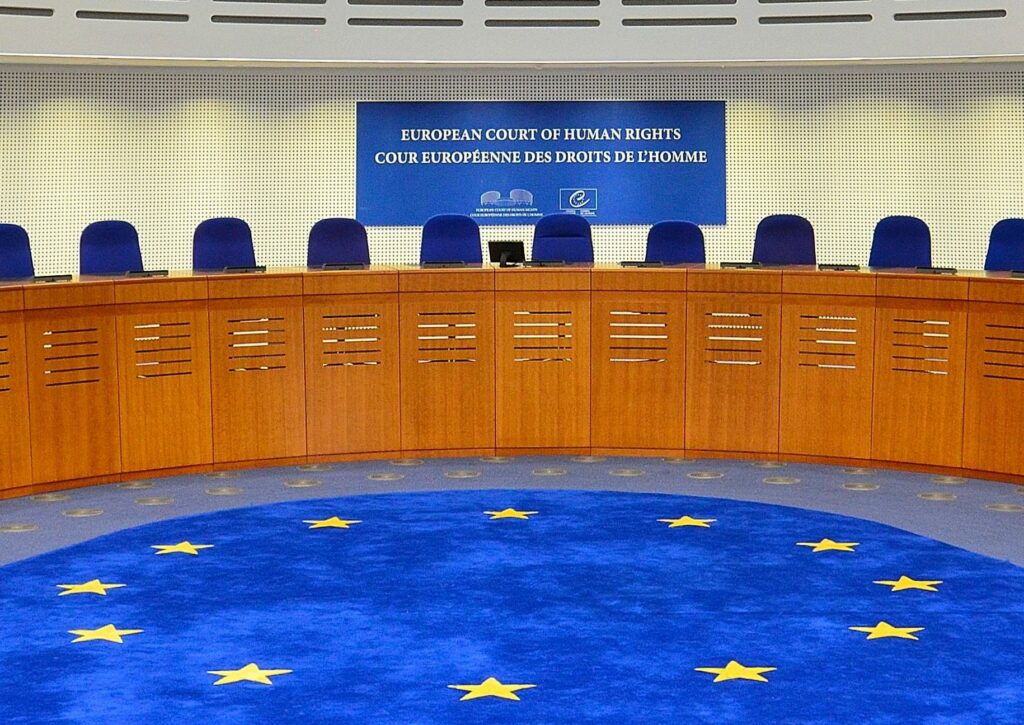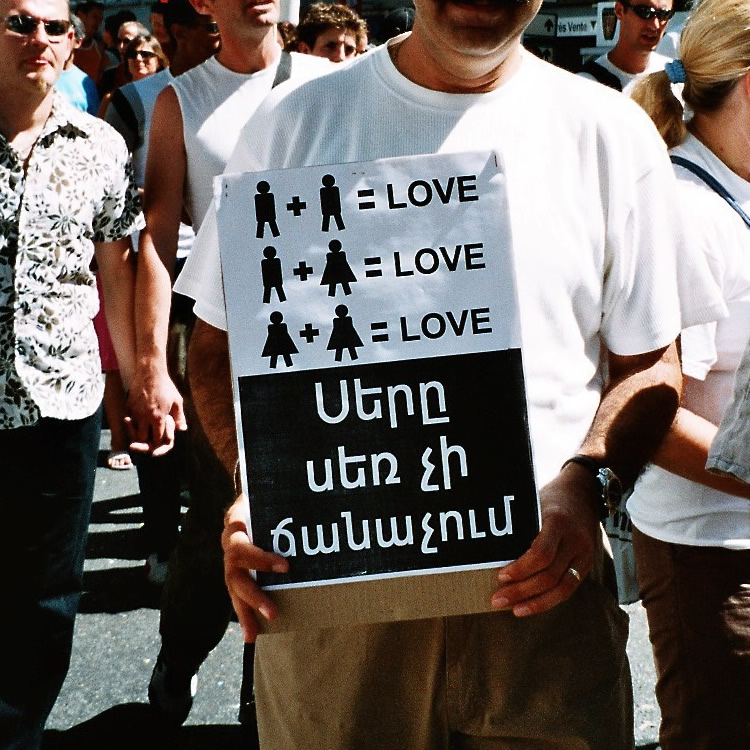Armenia
Categories Score
The full bar chart stands for 100%, and is filled by the country category score. The colour display uses the traffic light palette, with Green representing a score closer to 100% and Red a score closer to 0%.
ASYLUM
This category looks into laws that expressly include SOGISC as a qualification criteria for seeking asylum. We also take into account other legislation, policies, instruction or positive measures by state actors that are related to asylum addressing the needs and rights of LGBTI asylum seekers and refugees.
Criteria Compliance Ratio
Each pie charts stands for a category and is divided in slices by criteria. When a country complies with a criteria – fully or in some regions – the slice is coloured.
Keep in mind the criteria have different weighting factor within a category; for example, the criteria Prohibition of medical intervention without informed consent (intersex) stands for half (2.5%) of the INTERSEX BODILY INTEGRITY category weighting factor (5%). Meaning that even if a country can only comply with this specific criteria within the category (1/4 total criteria) the category scores 50%.
More information on the categories and criteria weighting factors here.
Category & Criteria Table
The table lists detailed information and insights on legislation supporting each criterion status. Please use the filters for in-depth analysis.
n/a = not applicable, meaning the criteria didn’t exist in the previous Rainbow Map edition (PROGRESSION column)
- Complies
- Applicable in some regions only
- Does not Comply
RECOMMENDATIONS
In order to improve the legal and policy situation of LGBTI people in Armenia, ILGA-Europe recommend:
- Adopting anti-discrimination legislation which expressly mentions SOGIESC in employment.
- Adopting a hate crime law which expressly mentions of SOGISC.
- Adopting a fair, transparent legal framework for legal gender recognition, based on a process of self-determination, free from abusive requirements (such as sterilisation, GID/medical diagnosis, or surgical/medical intervention), and including access for non-binary individuals, and allowing for name change without obstacles, including no age restriction.
Annual Review of ARMENIA
In our Annual Review of the Human Rights Situation of LGBTI People in Europe and Central Asia, we examine the advances made and provide concrete examples of on-the-ground situations at national level country-by-country in the 12 months from January to December 2024.
Read our Annual Review of Armenia below more details and stories behind the Rainbow Map. You can also download the Annual Review chapter (.pdf) covering Armenia.
-
In July, a café owner publicly outed a gay customer in front of other customers, subjected him to insults, and ultimately denied him service, forcing him to leave the establishment. The individual reported the incident to law enforcement, but the ensuing criminal investigation did not address the element of discrimination based on sexual orientation. The details of the case were brought to light by Pink NGO, which documented the incident and will include its details in its annual report in early 2025.
-
In January, an Armenian court examined a claim against the Armenian Migration Service’s decision to reject the asylum application of a man who fled the republic of Chechnya after being tortured over his perceived homosexuality. The court ruled that LGBTI people are not safe in Chechnya and Russia, consequently granting him asylum and refugee status in Armenia and rejecting Russia’s request to extradite him.
-
In alignment with the ongoing trend observed in recent years, in 2024, the LGBTI community was subjected to political manipulation by the opposition to the the Government. The discourse centred around proposed constitutional changes. Another instance of discriminatory rhetoric transpired in Parliament during discussions regarding amendments to the law against domestic violence, specifically concerning the definition of the term “partner.”
Another surge of hate speech focused on Diana Ghzroyan, who represented Armenia at the “Miss Trans Star International 2024” beauty contest. Her participation incited a wave of derogatory and degrading remarks, which included threats and incitements to violence and discrimination based on her gender identity. Vahe Yeghiazaryan, who had attacked a trans woman during a livestream two years prior, directed explicit threats toward Ghzroyan and, in the aftermath of the murder of Georgian trans activist Kesaria Abramidze, certain offenders have made comments suggesting that Ghzroyan could be the next target. Despite the serious nature of these threats and the condemnations issued by non-governmental organisations, no criminal investigations have been initiated to examine the criminal elements of these messages or to hold the offenders accountable.
-
In January, the Court of General Jurisdiction of Ararat and Vayots Dzor overturned the prosecutor’s decision not to pursue charges against a father who had abused his son due to his sexual orientation.
The court found the investigation inadequate, deeming it a violation of the victim’s rights. The court also ruled that the constitutional prohibition against discrimination, which includes “personal or other social circumstances,” extends to sexual orientation, affirming its protection under the Constitution.
In February, two individuals attacked a gay man, an American citizen, with the explicit intention to physically harm him because of his perceived sexual orientation. For the first time in Armenian history, the investigative body acknowledged hatred as a biased motivation during the criminal proceedings when determining the charges against the offenders. Initially, the preventive measure imposed on the offenders was a signature requirement to ensure they did not leave the country. However, one of the offenders continued to engage in criminal activities despite this measure, leading to the escalation of the preventative measure to formal arrest.
In June, a trans woman and sex worker was attacked in her own apartment by a client, as documented by the Right Side NGO.
-
Throughout 2024, LGBTI people reported multiple incidents of persistent violence and degrading treatment in educational settings. In one case, a lesbian teenager endured ongoing abuse at her college and youth centre due to her sexual orientation. The hostile environment forced her to transfer between educational institutions multiple times to continue her education safely. In another case, a gay student experienced relentless bullying from both teachers and peers. To avoid the harassment, he lied to his mother to skip school, a situation that persisted for ten years before he finally reported the abuse. Further information about these incidents among others, will be available in Pink NGO’s annual report in early 2025.
-
In June, human rights defender Anahit Manasyan delivered the opening speech at the concluding conference of the “Decent Work Now” program, which focused on addressing critical labour rights issues, including the protection of vulnerable groups such as LGBTI people.
A trans asylum seeker faced repeated refusals for employment at various establishments due to their gender expression. Although some employers initially agreed to hire them, they later withdrew their offers without providing any explanations upon noticing that the gender marker on the person’s identification documents had not been updated, according to Pink NGO. The case has been documented by the NGO as part of its documentation of discrimination based on gender identity and expression.
-
After ongoing advocacy efforts from HR activists, Ministry of Justice has in 2024 provided a new draft for an anti-discrimination law that broadly defines discrimination. However the draft still omits references to sexual orientation and gender identity and instead of setting up the Equality Body as an independent body, foresees it to operate under the Ombudsman’s office, which diminishes its authority and the legal weight of its decisions. Another critical gap in the draft law is the lack of legal competence granted to public organisations.
By the end of the year, at least 57 cases of discrimination, violence, and hate speech based on sexual orientation and gender identity were reported by LGBTI people. Violations recorded included instances of torture and inhumane treatment, such as conversion practices, domestic violence and breaches of privacy, robbery and extortion, and educational discrimination, including bullying and neglect by teaching staff. Notably, many of these discrimination cases entailed blackmail incidents targeting LGBTI people. Throughout the year, at least five hate crime cases were reported to Pink NGO, in which perpetrators extorted individuals by threatening to expose their sexual orientation or gender identity to family members or co-workers. In some instances, these crimes were perpetrated by the victims’ partners, who exploited their personal vulnerabilities for financial gain.
In September, ECOM published its 2024 analysis of Armenia’s national legislation concerning sexual orientation and gender identity (SOGI) and HIV, offering a range of recommendations for the Armenian government. The suggestions include adopting a comprehensive anti-discrimination law that defines discrimination, its types, and explicitly lists SOGI as protected grounds. It also urges amendments to various legal acts and norms to explicitly prohibit discrimination based on SOGI, as well as revisions to hate crime regulations in the Criminal Code to include SOGI in the list of protected characteristics.
-
In April, Armenia’s parliament passed amendments to strengthen the country’s domestic violence law, including the recognition of “partners” in civil unions and extending protections to LGBTI people. Each year, approximately 50% of the documented cases of discrimination and human rights violations against LGBTI people reported by Pink NGO involve domestic violence, encompassing physical, emotional, economic, and other forms of violence perpetrated by family members. Despite the prevalence of these cases, only a small number of people choose to report the incidents to the police, with currently only one case having reached the domestic courts. The changes came into force in July, criminalising domestic violence and recognising children who witness such violence as victims. Since then, at least two cases of partner abuse and violence have become known, in which those affected chose not to report these incidents to law enforcement agencies out of a desire to avoid further harm and mistreatment.
-
Two cases involving attempts of conversion therapy were documented in the past year by Pink NGO.
In the first instance, the mother of a teenage girl forcibly took her to both a psychologist and a neurologist in an effort to change her sexual orientation after the girl came out to her. One of the psychologists disclosed details about the girl’s sexuality to her mother, while the neurologist promised to “treat” her. In another case, a gay person sought psychological counselling but encountered a psychologist who encouraged him to pursue experiences with women. The individual was able to promptly terminate the counselling sessions due to this inappropriate guidance. In both situations, those affected chose to report their experiences only to Pink NGO’s social workers, declining to approach other specialists or authorities.
-
In January, the Parliamentary Assembly of the Council of Europe issued a written statement regarding anti-discrimination legislation in Armenia. In the statement, the Assembly urged the Armenian Government and Parliament to include protections based on sexual orientation, gender identity, expression, and sex characteristics in their proposed draft ‘law on equality’.
-
Police and law enforcement are not the first and often desirable point of contact for individuals who faced violence or other violations of their rights. For more information, see sections Family, Equality and Non-Discrimination and Freedom from Torture.
The full Annual Review for 2025 is available here.


